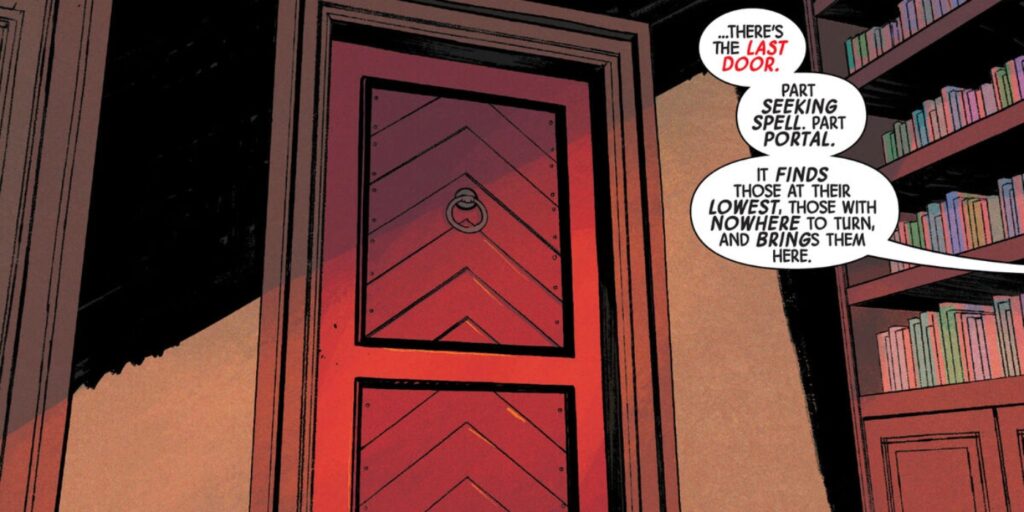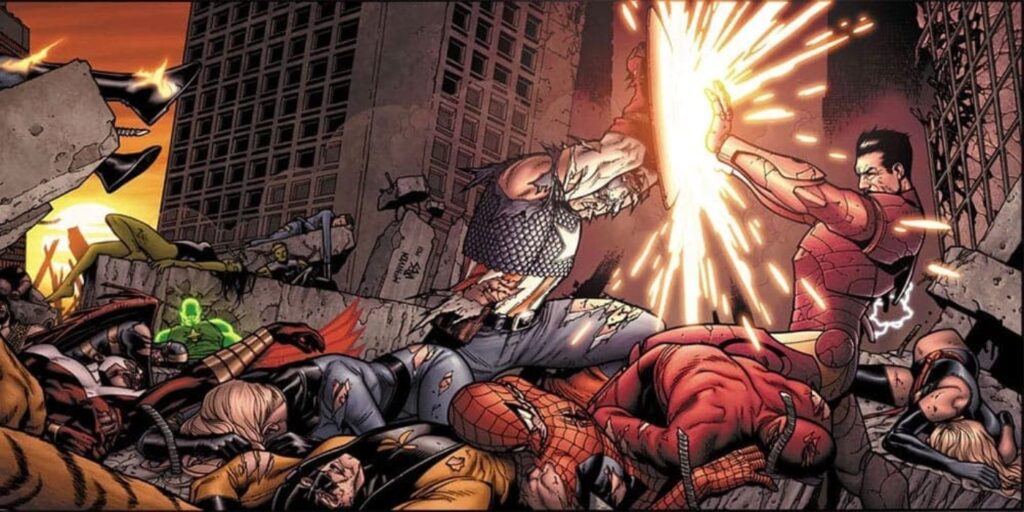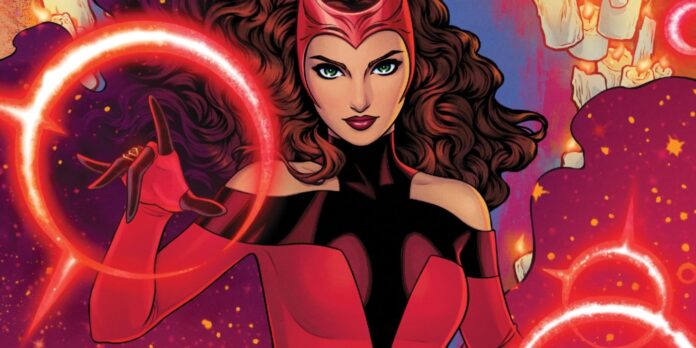The Marvel Universe has never been short on powerful artifacts, magical chaos, or reality-warping twists. However, lately, there’s one development that might just push the limits of storytelling continuity, and it comes courtesy of none other than the Scarlet Witch.
With the introduction of her newest magical creation, the Last Door, Marvel may have just created its biggest death paradox yet. For years, Scarlet Witch has been both a savior and a destroyer within the Marvel mythos. Yet her latest mystical invention, a gateway that can literally save people from dying, takes that duality to new extremes.
How Scarlet Witch’s Last Door Changes Everything

In Strange Tales #1, Wanda’s quiet, redemptive life running the Emporium in Lotkill, New York, takes an unexpected turn. Her mystical shop, already a beacon for lost souls and desperate heroes, houses the Last Door, a magical portal that appears to those on the brink of death. Think of it as a supernatural “get out of dying free” card, an emergency exit from the jaws of mortality. When Nico Minoru finds herself being hunted by a dragon spawned from a magical role-playing game gone wrong, the Last Door opens before her.
Related: Scarlet Witch Actor Elizabeth Olsen Has “No Idea What Happens” In ‘Marvel Zombies’
It saves her life instantly, pulling her straight to Wanda’s Emporium before disaster strikes. At first glance, it’s a touching scene. Nico’s connection to Wanda’s son, Billy Kaplan (a.k.a. Wiccan), makes the rescue feel emotionally grounded. However, the issue doesn’t stop there. The story subtly implies that anyone connected to Wanda, directly or indirectly, might be saved in the same way. Avengers, allies, even casual acquaintances could be yanked back from the brink of death by the Last Door’s intervention.
And that’s where the real problem begins. If death is no longer final for anyone Wanda cares about, the entire emotional foundation of the Marvel Universe begins to crumble. Imagine a world where any Avenger in mortal danger could simply be teleported to safety by Wanda’s magic. There’s no risk, no consequence, and therefore, no weight. Even more troubling, the Last Door connects directly to the world’s most powerful witch.
This means that any life-or-death event could potentially become a Scarlet Witch story. Every dying hero, every falling ally, all roads lead to Wanda. It’s a massive escalation of her role in the Marvel hierarchy. Moreover, while that’s thrilling narratively, it threatens to undercut the sense of peril that drives the superhero genre. If used to its full potential, the Emporium could become both a sanctuary and a prison. It could become a place where life and death blur together under Wanda’s quiet control.
The Last Door Creates A New Immortality Crisis

Marvel has been tampering with the concept of “permanent impermanence” for decades. Death, in comic books, has always been more of a narrative inconvenience than a true ending. Captain America didn’t die after Civil War; he was “frozen in time.” Hawkeye returned after Avengers Disassembled with barely an explanation. Wolverine, Jean Grey, Johnny Storm, the list of characters who’ve cheated death is long. At its best, resurrection can serve storytelling brilliance.
In case you missed it: Can Sentry Beat Scarlet Witch To Become MCU’s Strongest Superhero?
The revival of Bucky Barnes as the Winter Soldier gave readers a rich, morally complex character who redefined the Captain America mythos. However, when death becomes routine, when it’s undone so frequently that readers stop believing in it, it cheapens everything that comes before it. That’s the risk Scarlet Witch’s Last Door introduces. It’s not just another resurrection tool; it’s a narrative loophole. If anyone can cheat death by virtue of being in Wanda’s orbit, then the Avengers’ battles lose their bite.
Tragedy no longer has consequence, and sacrifice no longer has meaning. Marvel has tackled this issue before, most notably in House of X and Powers of X. The Krakoan Resurrection Protocols made death a central theme of mutant culture. However, those stories worked because resurrection came at a cost. It was ritualistic, cooperative, and filled with moral implications. Mutants had to ask what it meant to die and live again. Wanda’s Last Door, by contrast, is dangerously easy. It’s magic without consequence, mercy without limitation. While it fits Wanda’s personality, it risks undoing decades of character development.





